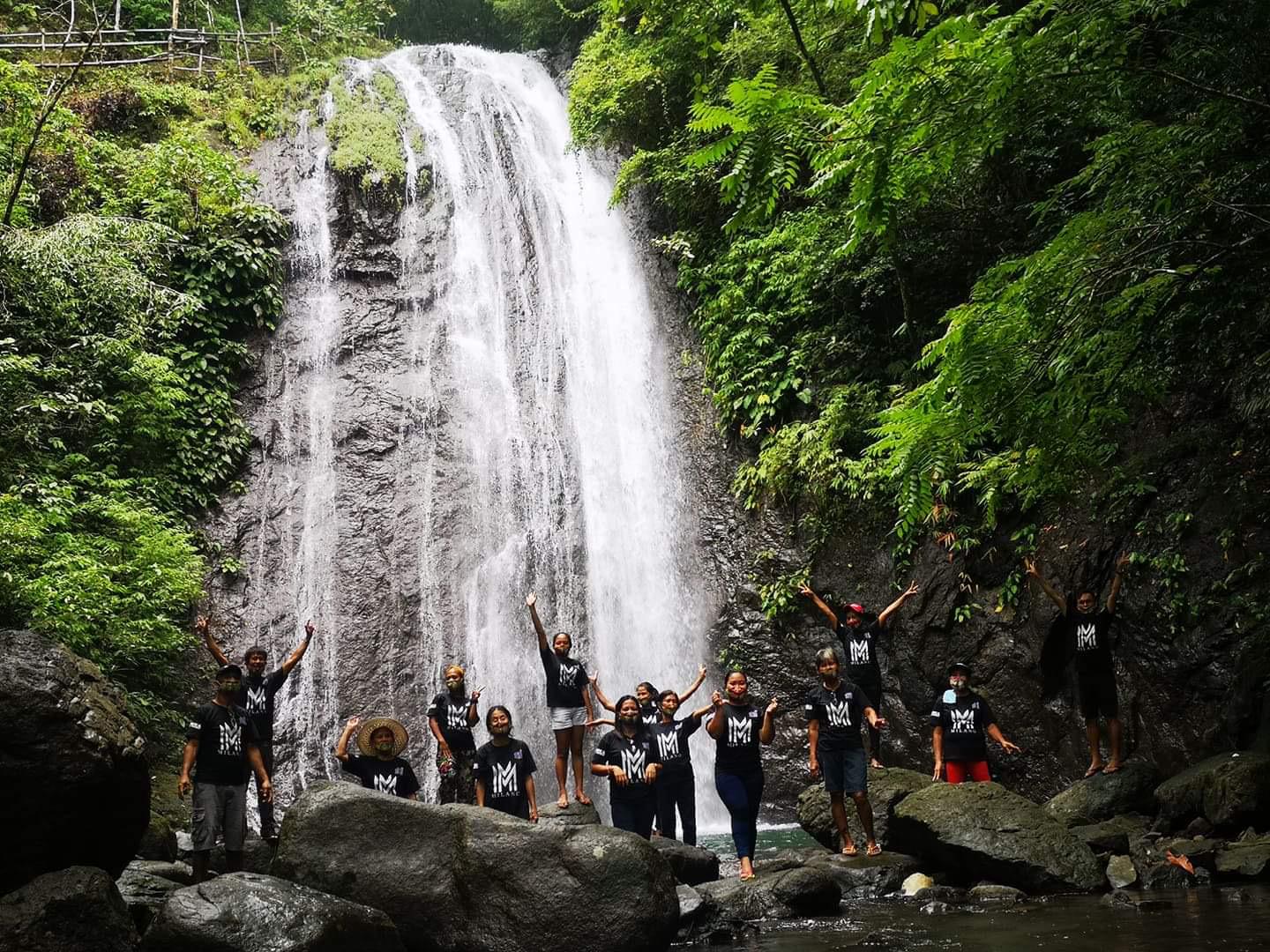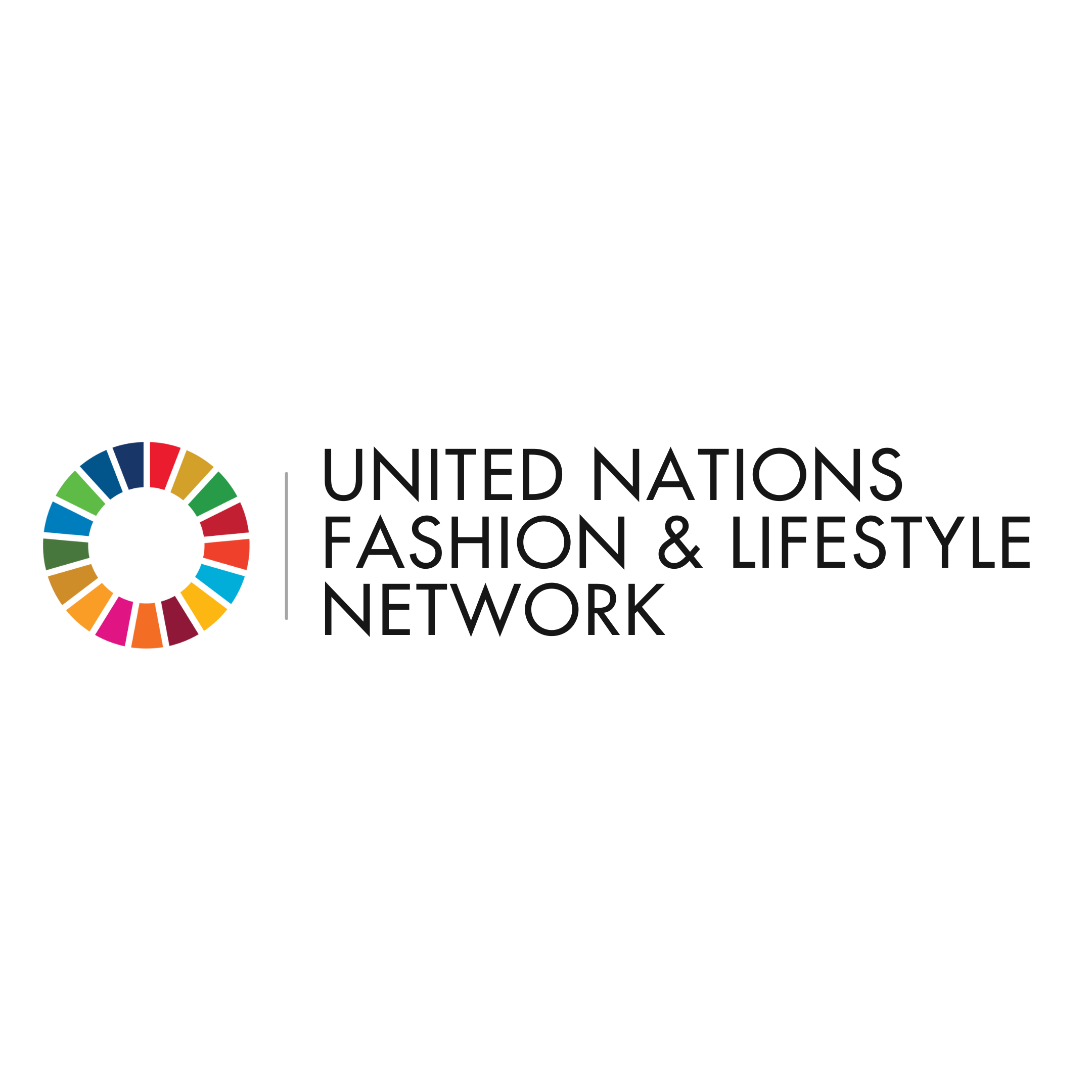MM Milano
MM Milano The Brand
(
Private sector
)
#SDGAction53044
Description
This partnership had three clear objectives: > Provide women-led local weaving communities in the Philippines with work, skill enhancement, and the opportunity to present their natural high-quality fabrics in dresses showcased on global runways. > Provide additional support to local families, for their children to gain access to education and be able to go to school. > Create awareness in the industry about sustainable practices and materials, and use the traditional fabrics and patterns from local weavers to create unisex/genderless clothing, in order to promote diversity and inclusion.
Before starting the collaboration, MM Milano Team undertook on-site visits and interviews with women weaver communities, to get a picture about the working environment, production processes, product quality, sustainability aspects, and other things important for starting the project. It became clear that a production and deployment of their traditional organic fabrics made from leftover pineapple and abaca fibers, for bigger markets in the future, would only be possible for the small weaving communities, through expanding their capacities and resources. Therefore, MM Milano Team together with DTI Philippines, set up a workshop on organic farming practices for local weaving communities. MM Milano further provided additional financial and in-kind support to help people through the Covid-crisis, and increase children's access to education. Using the natural hand-woven fabrics from the local communities, MM Milano's design division then created wonderful dresses and suits, and showcased them during international fashion weeks incl. in New York, Milan, Paris, Dubai. Workshops with MM Milano Talents, articles in fashion magazines, as well as promotion through social media followed. You can read more here: https://www.mmmilano-thebrand.com/mm-values
Our work with the local weaving communities has been recorded and shared through social media, our website, and at fashion events. We also had workshops with our own Talent community about more sustainable practices in the industry. We are further in touch with distributors for hand-woven fabrics in the Philippines, and assessing opportunities for increasing their reach.
The Sustainable Fashion Brand MM Milano, through its Philippine founder and Creative Director Chona Bacaoco, and through partners on the ground in the Philippines, was the central coordination body for this initiative. Implementation was then done in close collaboration with the partners mentioned above.
This project creates positive impact for the industry and beyond, in different areas: > Sustainability: The natural fabrics made from leftover fibers from pineapple and abacá harvest, provide the industry with a more sustainable, less energy-intensive alternative to incumbent materials. > Inclusion and economic opportunities for women: Women-led local weaving communities can access new markets beyond the Philippines, by promoting their products on international runways, social media, in designer retail stores, and more. > Innovation: Although this is about traditionally hand-woven textiles, the use of materials such as pineapple and abacá fibers, and transforming them into high-quality fabrics, can open doors for new ideas in the industry, linked to the use of more sustainable, environmental-friendly materials.
This initiative benefitted from a great public-private collaboration between the Sustainable Fashion Brand MM Milano from Milan, Italy, and women-led local weaving communities in rural areas of the Philippines, as well as the Government of the Philippines, esp. the Department of Trade and Industry (DTI).
SDGS & Targets
Goal 4
Ensure inclusive and equitable quality education and promote lifelong learning opportunities for all
4.1
By 2030, ensure that all girls and boys complete free, equitable and quality primary and secondary education leading to relevant and effective learning outcomes
4.1.1
Proportion of children and young people (a) in grades 2/3; (b) at the end of primary; and (c) at the end of lower secondary achieving at least a minimum proficiency level in (i) reading and (ii) mathematics, by sex
4.1.2
Completion rate (primary education, lower secondary education, upper secondary education)
4.2
By 2030, ensure that all girls and boys have access to quality early childhood development, care and pre-primary education so that they are ready for primary education
4.2.1
Proportion of children aged 24–59 months who are developmentally on track in health, learning and psychosocial well-being, by sex
4.2.2
Participation rate in organized learning (one year before the official primary entry age), by sex
4.3
By 2030, ensure equal access for all women and men to affordable and quality technical, vocational and tertiary education, including university
4.3.1
Participation rate of youth and adults in formal and non-formal education and training in the previous 12 months, by sex
4.4
By 2030, substantially increase the number of youth and adults who have relevant skills, including technical and vocational skills, for employment, decent jobs and entrepreneurship
4.4.1
Proportion of youth and adults with information and communications technology (ICT) skills, by type of skill
4.5
4.5.1
Parity indices (female/male, rural/urban, bottom/top wealth quintile and others such as disability status, indigenous peoples and conflict-affected, as data become available) for all education indicators on this list that can be disaggregated
4.6
By 2030, ensure that all youth and a substantial proportion of adults, both men and women, achieve literacy and numeracy
4.6.1
Youth/adult literacy rate
4.7
By 2030, ensure that all learners acquire the knowledge and skills needed to promote sustainable development, including, among others, through education for sustainable development and sustainable lifestyles, human rights, gender equality, promotion of a culture of peace and non-violence, global citizenship and appreciation of cultural diversity and of culture’s contribution to sustainable development
4.7.1
Extent to which (i) global citizenship education and (ii) education for sustainable development are mainstreamed in (a) national education policies; (b) curricula; (c) teacher education and (d) student assessment
4.a
Build and upgrade education facilities that are child, disability and gender sensitive and provide safe, non-violent, inclusive and effective learning environments for all
4.a.1
Proportion of schools offering basic services, by type of service
4.b
4.b.1
Volume of official development assistance flows for scholarships
4.c
By 2030, substantially increase the supply of qualified teachers, including through international cooperation for teacher training in developing countries, especially least developed countries and small island developing States
4.c.1
Proportion of teachers with the minimum required qualifications, by education level
Goal 5
Achieve gender equality and empower all women and girls
5.1
End all forms of discrimination against all women and girls everywhere
5.1.1
Whether or not legal frameworks are in place to promote, enforce and monitor equality and non‑discrimination on the basis of sex
5.2
5.2.1
Proportion of ever-partnered women and girls aged 15 years and older subjected to physical, sexual or psychological violence by a current or former intimate partner in the previous 12 months, by form of violence and by age
5.2.2
Proportion of women and girls aged 15 years and older subjected to sexual violence by persons other than an intimate partner in the previous 12 months, by age and place of occurrence
5.3
5.3.1
Proportion of women aged 20-24 years who were married or in a union before age 15 and before age 18
5.3.2
Proportion of girls and women aged 15-49 years who have undergone female genital mutilation/cutting, by age
5.4
Recognize and value unpaid care and domestic work through the provision of public services, infrastructure and social protection policies and the promotion of shared responsibility within the household and the family as nationally appropriate
5.4.1
Proportion of time spent on unpaid domestic and care work, by sex, age and location
5.5
Ensure women’s full and effective participation and equal opportunities for leadership at all levels of decision-making in political, economic and public life
5.5.1
Proportion of seats held by women in (a) national parliaments and (b) local governments
5.5.2
Proportion of women in managerial positions
5.6
Ensure universal access to sexual and reproductive health and reproductive rights as agreed in accordance with the Programme of Action of the International Conference on Population and Development and the Beijing Platform for Action and the outcome documents of their review conferences
5.6.1
Proportion of women aged 15-49 years who make their own informed decisions regarding sexual relations, contraceptive use and reproductive health care
5.6.2
Number of countries with laws and regulations that guarantee full and equal access to women and men aged 15 years and older to sexual and reproductive health care, information and education
5.a
Undertake reforms to give women equal rights to economic resources, as well as access to ownership and control over land and other forms of property, financial services, inheritance and natural resources, in accordance with national laws
5.a.1
(a) Proportion of total agricultural population with ownership or secure rights over agricultural land, by sex; and (b) share of women among owners or rights-bearers of agricultural land, by type of tenure
5.a.2
Proportion of countries where the legal framework (including customary law) guarantees women’s equal rights to land ownership and/or control
5.b
5.b.1
Proportion of individuals who own a mobile telephone, by sex
5.c
Adopt and strengthen sound policies and enforceable legislation for the promotion of gender equality and the empowerment of all women and girls at all levels
5.c.1
Proportion of countries with systems to track and make public allocations for gender equality and women’s empowerment
Goal 13
Take urgent action to combat climate change and its impacts
13.1
Strengthen resilience and adaptive capacity to climate-related hazards and natural disasters in all countries
13.1.1
Number of deaths, missing persons and directly affected persons attributed to disasters per 100,000 population
13.1.2
Number of countries that adopt and implement national disaster risk reduction strategies in line with the Sendai Framework for Disaster Risk Reduction 2015–2030
13.1.3
Proportion of local governments that adopt and implement local disaster risk reduction strategies in line with national disaster risk reduction strategies
13.2
Integrate climate change measures into national policies, strategies and planning
13.2.1
Number of countries with nationally determined contributions, long-term strategies, national adaptation plans and adaptation communications, as reported to the secretariat of the United Nations Framework Convention on Climate Change
13.2.2
Total greenhouse gas emissions per year
13.3
Improve education, awareness-raising and human and institutional capacity on climate change mitigation, adaptation, impact reduction and early warning
13.3.1
Extent to which (i) global citizenship education and (ii) education for sustainable development are mainstreamed in (a) national education policies; (b) curricula; (c) teacher education; and (d) student assessment
13.a
Implement the commitment undertaken by developed-country parties to the United Nations Framework Convention on Climate Change to a goal of mobilizing jointly $100 billion annually by 2020 from all sources to address the needs of developing countries in the context of meaningful mitigation actions and transparency on implementation and fully operationalize the Green Climate Fund through its capitalization as soon as possible
13.a.1
Amounts provided and mobilized in United States dollars per year in relation to the continued existing collective mobilization goal of the $100 billion commitment through to 2025
13.b
Promote mechanisms for raising capacity for effective climate change-related planning and management in least developed countries and small island developing States, including focusing on women, youth and local and marginalized communities
13.b.1
Number of least developed countries and small island developing States with nationally determined contributions, long-term strategies, national adaptation plans and adaptation communications, as reported to the secretariat of the United Nations Framework Convention on Climate Change
SDG 14 targets covered
Deliverables & Timeline
Expanding the promotion of hand-woven sustainable materials from local women-led communities in the Philippines
Raise awareness around sustainable practices and natural materials in the industry, at fashion events and through social media.
Increase access to education for children in local weaving communities.
Resources mobilized
Partnership Progress

Feedback
Action Network

Timeline
Entity
Region
- Europe
- Asia and Pacific
Geographical coverage
Other beneficiaries
Women-led local weaving communities in the Philippines, designers, consumers.
More information
Countries


